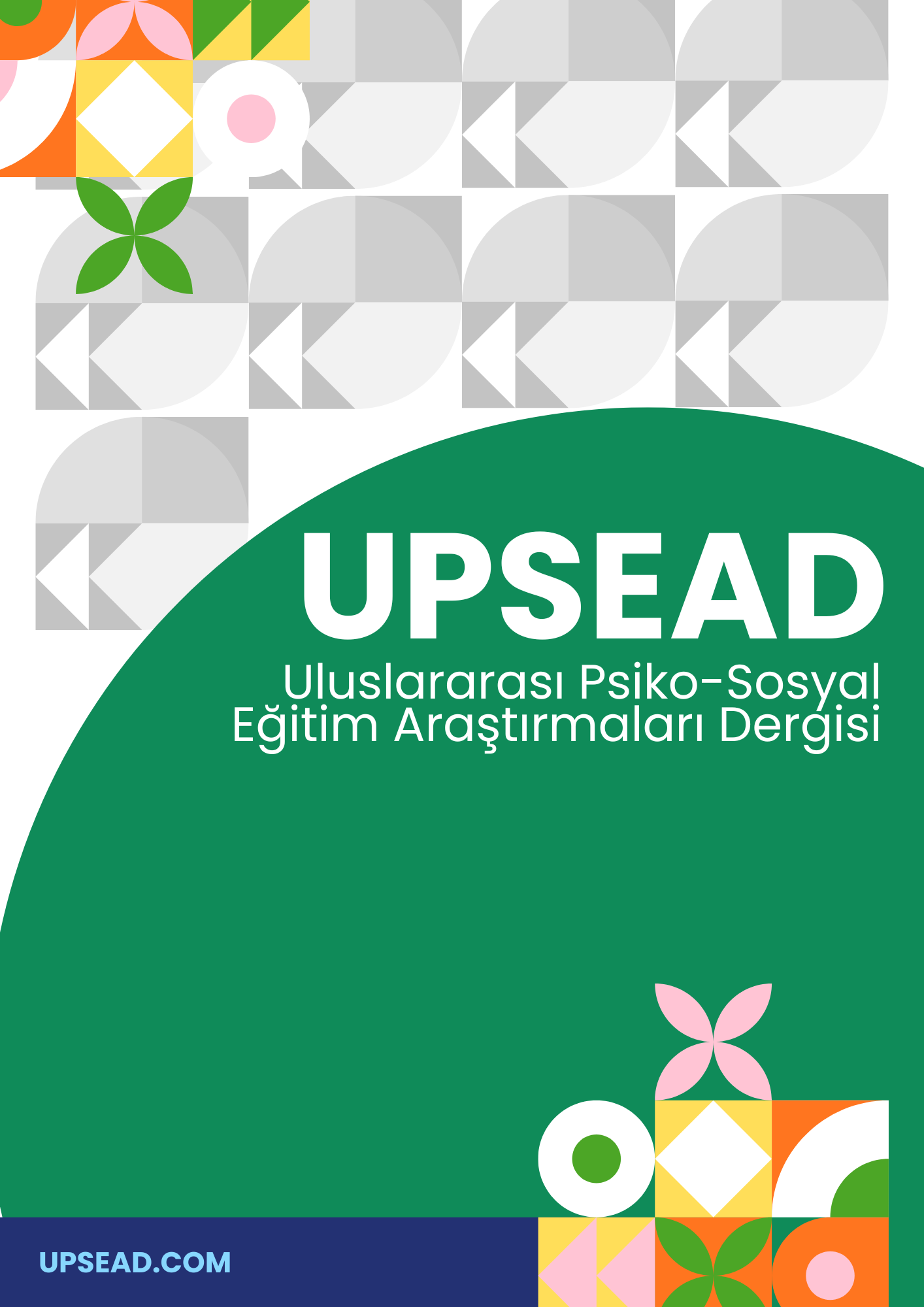Derleme Makalesi | Açık Erişim
Uluslararası Psiko-Sosyal Eğitim Araştırmaları Dergisi 2025, Clt. 5(8) 67-74
Psychological Richness: Conceptual Framework and Literature Review
ss. 67 - 74 | DOI: https://doi.org/10.29329/upsead.2025.1335.4
Yayın Tarihi: Haziran 30, 2025 | Görüntüleme Sayısı: 82/70 | İndirilme Sayısı: 88/76
Özet
A psychologically rich life is a new form of well-being and an alternative to eudaimonic and hedonic well-being. Psychological richness is associated with happiness and meaning, but it is a different concept with unique predictors and outcomes. Personality correlates of psychological richness are openness to experience, extraversion, and low neuroticism. Moreover, activities like taking trips, reading fiction, studying abroad, and social events are related to higher psychological richness. Additionally, psychological richness is related to higher cognitive complexity, such as the tendency to holistic thinking and attributional complexity. The ultimate end point of psychological richness is wisdom. The Psychologically Rich Life Questionnaire was developed to measure psychological richness, and it was adapted into Turkish. The psychologically rich life is a newly suggested way to reach a good life.
Anahtar kelimeler: Psychological richness, good life, well-being, eudaimonic well-being, hedonic well-being
APA 7th edition
Yilmaz, F.B., & Satici, S.A. (2025). Psychological Richness: Conceptual Framework and Literature Review. Uluslararası Psiko-Sosyal Eğitim Araştırmaları Dergisi, 5(8), 67-74. https://doi.org/10.29329/upsead.2025.1335.4
Harvard
Yilmaz, F. and Satici, S. (2025). Psychological Richness: Conceptual Framework and Literature Review. Uluslararası Psiko-Sosyal Eğitim Araştırmaları Dergisi, 5(8), pp. 67-74.
Chicago 16th edition
Yilmaz, Fatma Betul and Seydi Ahmet Satici (2025). "Psychological Richness: Conceptual Framework and Literature Review". Uluslararası Psiko-Sosyal Eğitim Araştırmaları Dergisi 5 (8):67-74. https://doi.org/10.29329/upsead.2025.1335.4
Barlow, D. H., Ellard, K. K., Sauer-Zavala, S., Bullis, J. R., & Carl, J. R. (2014a). The origins of neuroticism. Perspectives on Psychological Science, 9(5), 481-496. https://doi.org/10.1177/1745691614544528
Barlow, D. H., Sauer-Zavala, S., Carl, J. R., Bullis, J. R., & Ellard, K. K. (2014b). The nature, assessment, and treatment of neuroticism: Back to the future? Clinical Psychological Science, 2, 344–365. https://doi.org/10.1177/2167702613505532
Baumeister, R. F., Vohs, K. D., Aaker, J. L., & Garbinsky, E. N. (2013). Some key differences between a happy life and a meaningful life. The Journal of Positive Psychology, 8(6), 505–516. https://doi.org/10.1080/17439760.2013.830764
Choi, I., Koo, M., & Choi, J. A. (2007). Individual differences in analytic versus holistic thinking. Personality and Social Psychology Bulletin, 33(5), 691-705. https://doi.org/10.1177/0146167206298568
Costa, P. T., Jr., & McCrae, R. R. (2011). The Five-Factor Model, Five-Factor Theory, and interpersonal psychology. In L. M. Horowitz & S. Strack (Eds.), Handbook of interpersonal psychology: Theory, research, assessment, and therapeutic interventions (pp. 91–104). John Wiley & Sons, Inc..
Diener, E. (1984). Subjective well-being. Psychological Bulletin, 95, 542-575. http://dx.doi.org/10.1037/0033-2909.95.3.542
Diener. E., Oishi, S., & Tay, L. (Eds). (2018). Handbook of well-being. Noba Scholar
Fredrickson, B. L. (2001). The role of positive emotions in positive psychology: The broaden-and-build theory of positive emotions. American Psychologist, 56(3), 218. https://doi.org/10.1037/0003-066X.56.3.218
Fredrickson, B. L. (2004). The broaden–and–build theory of positive emotions. Philosophical transactions of the royal society of London. Series B: Biological Sciences, 359(1449), 1367-1377. https://doi.org/10.1098/rstb.2004.1512
Gable, S. L., & Haidt, J. (2005). What (and why) is positive psychology?. Review of General Psychology, 9(2), 103-110. https://doi.org/10.1037/1089-2680.9.2.103
Gu, Y., Tao, L., & Zheng, W. (2023). Relationship between COVID‐19‐related stress and social inhibition among university students in China: The mediating role of psychological richness. Social and Personality Psychology Compass, 17(11), e12872. https://doi.org/10.1111/spc3.12872
Kaufman, S. B., Quilty, L. C., Grazioplene, R. G., Hirsh, J. B., Gray, J. R., Peterson, J. B., & DeYoung, C. G. (2016). Openness to experience and intellect differentially predict creative achievement in the arts and sciences. Journal of Personality, 84(2), 248-258. https://doi.org/10.1111/jopy.12156
Leung, A. K. Y., Maddux, W. W., Galinsky, A. D., & Chiu, C. Y. (2008). Multicultural experience enhances creativity: The when and how. American Psychologist, 63(3), 169. https://doi.org/10.1037/0003-066X.63.3.169
Mauro, F., Di Trani, M., & Simione, L. (2025). The psychologically rich life questionnaire: Italian validation and exploration of its relationships with mindfulness, self-compassion, and cognitive fusion within the health psychology framework. Frontiers in Psychology, 16, 1525300. https://doi.org/10.3389/fpsyg.2025.1525300
Oishi, S., & Westgate, E. C. (2022). A psychologically rich life: Beyond happiness and meaning. Psychological Review, 129(4), 790. https://doi.org/10.1037/rev0000317
Oishi, S., Choi, H., Koo, M., Galinha, I., Ishii, K., Komiya, A., Luhmann, M., Scollon, C., Shin, J., Lee, H., Suh, E.M., Vittersø, J., Heintzelman, S. J., Kushlev, K., Westgate, E.C., Buttrick, N., Tucker, J., Ebersole, C. R., Axt, J.,... Besser, L. L. (2020). Happiness, meaning, and psychological richness. Affective Science, 1, 107-115. https://doi.org/10.1007/s42761-020-00011-z
Oishi, S., Choi, H., Liu, A., & Kurtz, J. (2021). Experiences associated with psychological richness. European Journal of Personality, 35(5), 754-770. https://doi.org/10.1177/0890207020962334
Oishi, S., Westgate, E., & Cha, Y. (2024). The cognitive complexity of a happy life, a meaningful life, and a psychologically rich life. Journal of Research in Personality, 110, 104475. https://doi.org/10.1016/j.jrp.2024.104475
Peterson, E. G., & Hidi, S. (2019). Curiosity and interest: Current perspectives. Educational Psychology Review, 31(4), 781-788. https://doi.org/10.1016/j.cobeha.2020.06.008
Ryan, M. R., Deci, E.L. (2001). On happiness and human potential: A review of research on hedonic and eudaimonic well-being. Annual Review of Psychology, 52, 167-196. https://doi.org/10.1146/annurev.psych.52.1.141
Ryff, C. D. (1989). Happiness is everything, or is it? Explorations on the meaning of psychological well-being. Journal of Personality and Social Psychology, 57(6), 1069. https://doi.org/10.1037/0022-3514.57.6.1069
Seligman, M. E., Steen, T. A., Park, N., & Peterson, C. (2005). Positive psychology progress: Empirical validation of interventions. American Psychologist, 60(5), 410. https://doi.org/10.1037/0003-066X.60.5.410
Silvia, P. J., & Christensen, A. P. (2020). Looking up at the curious personality: Individual differences in curiosity and openness to experience. Current Opinion in Behavioral Sciences, 35, 1-6. https://doi.org/10.1016/j.cobeha.2020.05.013
The APA 1998 Annual Report (1999). American Psychologist, 54(8), 537-568. https://doi.org/10.1037/0003-066X.54.8.537
Yilmaz, F.B., & Satici, S. A. (in press). Exploring Psychological Richness: Turkish Psychologically Rich Life Questionnaire and Its Relationship with Personality Traits, Distress, and Adjustment.
Zhao, X., Davey, G., & Wan, X. (2025). The Psychologically Rich Life Questionnaire in China. PsyCh Journal, 14(1), 153-154. https://doi.org/10.1002/pchj.812
